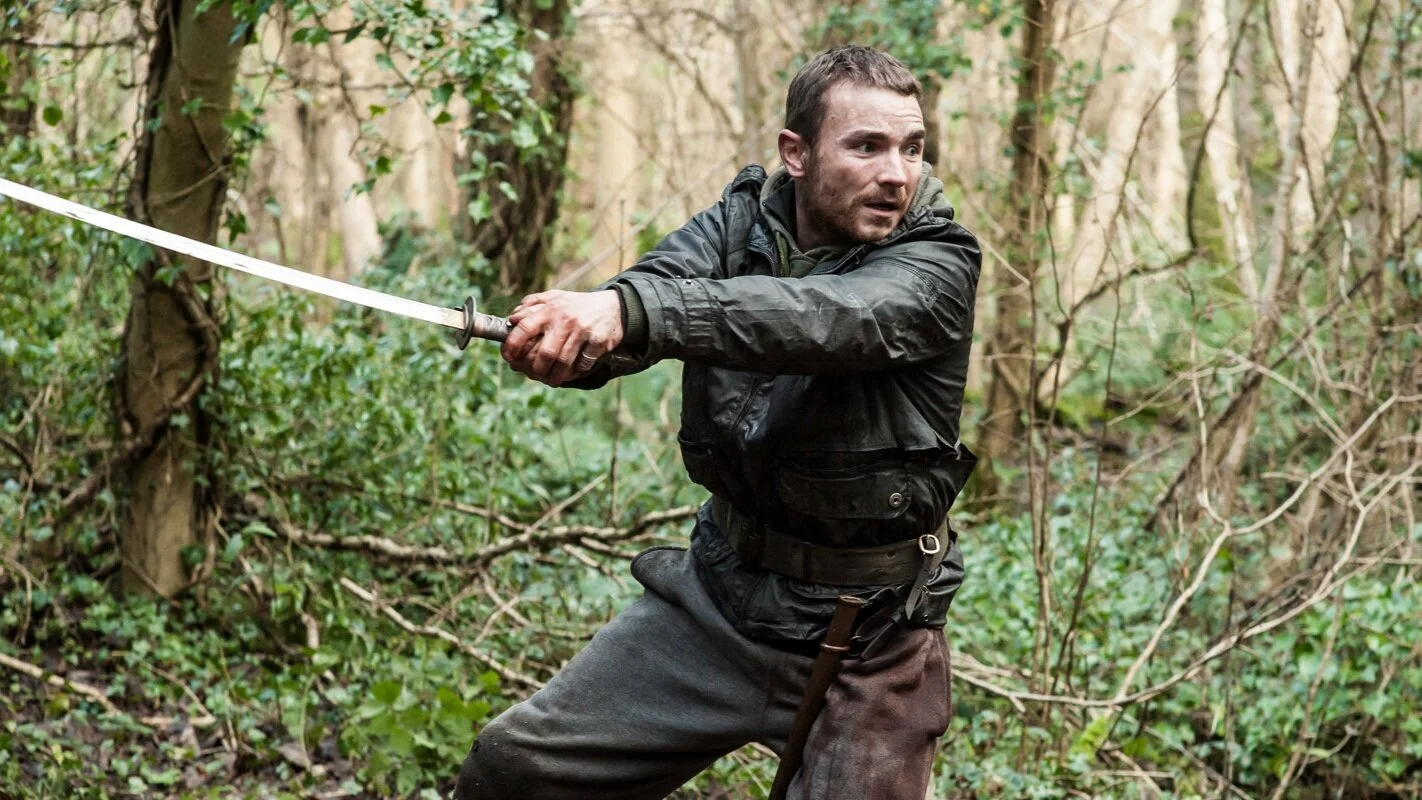The Survivalist
A disturbing drama of unquestionable brilliance, but one that raises questions.
Stephen Fingleton who wrote and directed this film comes from Northern Ireland and with it he makes his feature debut in both roles. It should be said at once that his is a striking talent: he possesses a sense of cinema so strong that it arouses huge enthusiasm for his skills. Indeed, it suggests that he has the potential to be a great filmmaker. Already in this work with its limited dialogue he displays a keen sense of storytelling through images (the film is shot in colour and ’Scope by Damien Elliott) while also revealing a keen ear for sound in a context where music is never overused. A tracking camera shot in an exterior scene involving an assailant is especially memorable, but Fingleton must also share some of the credit with his actors for the fact that all three leads are terrific. On top of all that the impressive editing was doubtless born of a close collaboration between him and Mark Towns.
So what is the story on which so much talent has been expended and why, for all its qualities, do I have serious reservations about this film? In point of fact, The Survivalist is not easily classifiable. At the outset a graph charting human population growth and oil production is used to suggest that what follows is a post-apocalyptic work about a loner (Martin McCann) cultivating crops to survive while living in a shack in an isolated location. In this world strangers are dangerous and he is wary when Kathryn (Olwen Fouere) arrives with her daughter, Milja (Mia Goth), asking for shelter. Eventually he does allow them to stay and Kathryn seems willing for him to begin a sexual relationship with Milja. But, unsuspected by him, Kathryn wants Milja to kill him so that the two of them can take over. Even so, the worst danger to all of them may come from outside.
Despite the futuristic element, this plays like a study of man’s primal instincts and as such it is a very tough film indeed. Arguably, the aim is to create a drama that warns about the human need for love and compassion when both are in short supply. In one of the film’s least subtle moments, we discover that the man who burnt the bible to heat his fire has preserved a book with illustrations dealing with man’s inhumanity to man. However, it is those most likely to welcome this theme who may be most taken aback by the film. Fingleton has referred to his film being frank about nudity and violence which may suggest that as a filmmaker he is a child of his times. The nudity is certainly general (male and female, young and old) and is no great cause for alarm, but the violence seems over-indulged: one character receives a serious wound which is then dwelt upon to such an extent that the phrase ‘torture porn’ unfairly used by some to describe The Revenant seems much more applicable here. This could be regarded as a matter of taste so that it should not have been allowed to reduce my rating (which it has) – but, if it puts off the very audience whose sensitivities Fingleton wants to encourage, it is surely a bad error of judgment.
MANSEL STIMPSON
Cast: Martin McCann, Mia Goth, Olwen Fouere, Douglas Russell, Andrew Simpson, Ryan McParland.
Dir Stephen Fingleton, Pro Wayne Marc Godfrey, Robert Jones and David Gilbery, Screenplay Stephen Fingleton, Ph Damien Elliott, Pro Des Dick Lunn, Ed Mark Towns, Costumes Susan Scott.
The Fyzz Facility Film One/BFI/Northern Ireland Screen-Bulldog Film Distribution.
105 mins. UK. 2015. Rel: 12 February 2016. Cert. 18.


